High wire acts, Microsoft Clippy, and DIY AI at Dreamforce 2024
Salesforce announced a major new service at Dreamforce 2024 – just don’t compare it to Microsoft in front of Marc Benioff
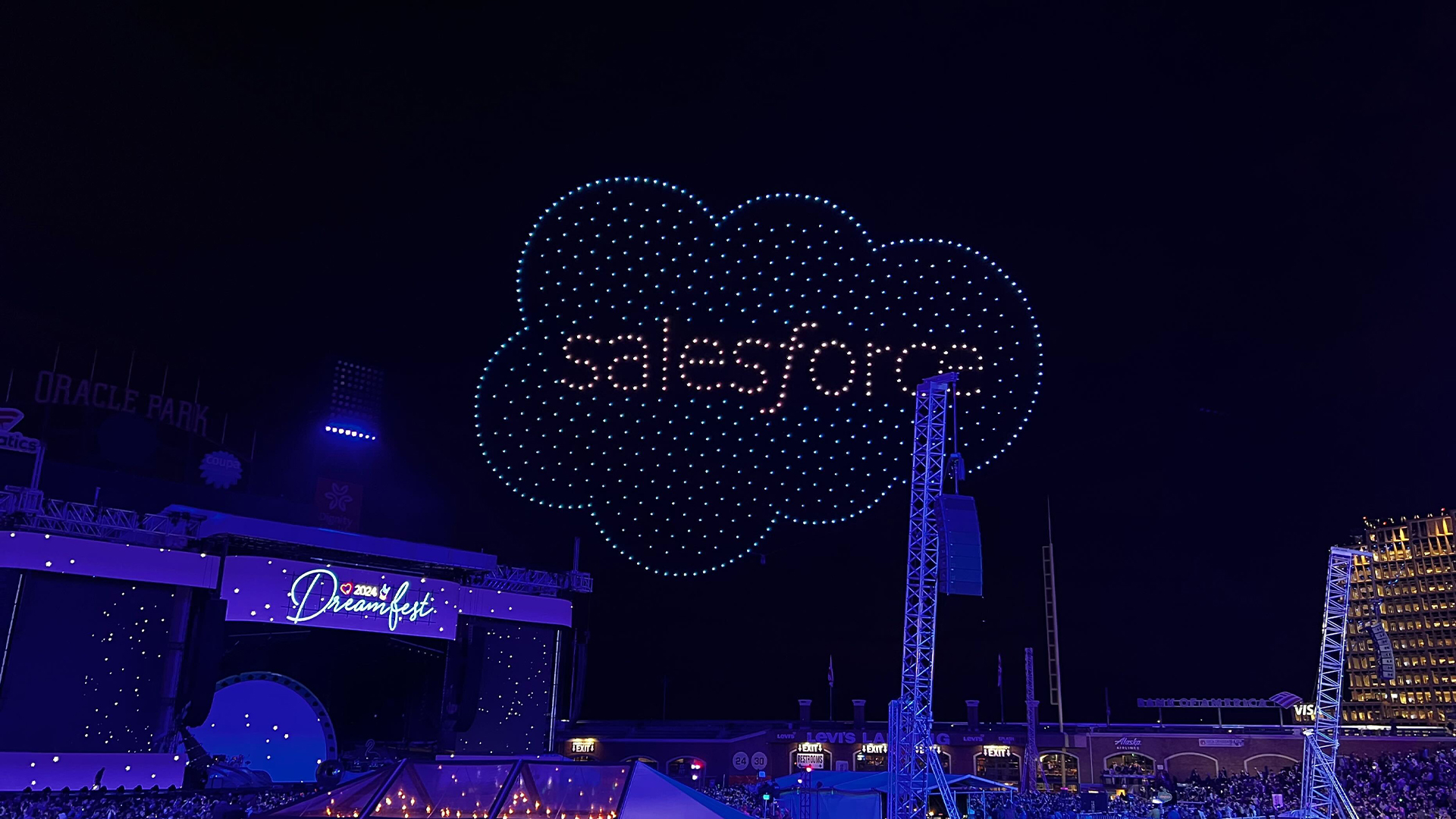

Watching Pink soar above crowds at Oracle Park during an acrobatic rendition of ‘So What’ seemed an appropriate finale to Dreamforce 2024, especially given Salesforce’s ambitious new strategy was described as a “high wire act” by CEO Marc Benioff.
It’s been nearly two years since generative AI burst onto the scene, and while the early days may have been exciting, at this point I’m sure most of us are absolutely sick to death hearing about it.
Virtually every tech conference was saturated by generative AI last year and this has kept up so far across 2024. It’s become tiring.
To say Dreamforce was no different would be harsh. Yes, AI was the big talking point again, but something about it felt different. First and foremost, Salesforce didn’t actually use the term ‘AI’ too heavily considering that its big announcement was centered around the technology.
‘AI agents’, we learned, are the new big thing in the world of AI. And it’s not just a newfangled piece of corporate jargon either. If Benioff is to be believed, agents are the future of AI.
Salesforce’s big gambit in the coming years now rests on its new Agentforce service. This allows customers to create AI agents that essentially carry out tasks on behalf of a worker. From customer service to healthcare and retail, Salesforce thinks everyone will be using agents within a year or two.
Whether or not this strategy pays off is unclear and another discussion entirely, but what is clear is that Benioff is very excited and fiercely protective of his new vision.
Sign up today and you will receive a free copy of our Future Focus 2025 report - the leading guidance on AI, cybersecurity and other IT challenges as per 700+ senior executives
Salesforce goes for the competition
During the opening keynote, Benioff fired a broadside at Microsoft over the supposedly poor performance of its flagship Copilot service, referring to it – and others – as ‘DIY AI’ that simply hadn’t delivered on grandiose promises.
Organizations are wasting money trying to build AI solutions with popular large language models (LLMs) and failing miserably, attendees were told. Making matters worse, the outputs from popular LLMs are substandard and unreliable while hallucinations are still wreaking havoc.
The statement was bold, but the follow-up was bizarre. Asking the crowd if they knew what DIY was, he suggested it may just be a “San Francisco thing”.
I find it hard to picture Benioff upcycling IKEA bookshelves, but you never know.
Regardless, Salesforce’s latest pitch now rests on the idea that big tech vendors have shoved generative AI copilots down the throats of enterprises while promising to make their dreams come true. Worse still, they’re placing too much burden on customers by just dropping tools in their lap and sauntering off with a big cheque.
Agents are the new frontier and the next step, according to Benioff. But some may wonder how they’re actually any different to a copilot or general AI assistant.
Hot on the heels of the opening keynote, a Bloomberg journalist said the quiet part out loud, asking whether Agentforce represented a “meaningful new step” and not just a Copilot rebrand – and this set the tone for the rest of the press briefing.
Benioff went all-in on the criticism of Microsoft, describing Copilot as nothing better than Microsoft Clippy before slamming the capabilities of ChatGPT.
While the comments were jarring, it has to be said they were equally refreshing. Maybe Microsoft and OpenAI have shared too much of the limelight these last 18 months. Google can’t publicize a product announcement without OpenAI nudging the company out of the spotlight with its own tactical announcements.
The numbers don't match the hype, either. Reporting from The Information in early September estimated that between 0.1% and 1% of the tech giant's 400+ million Microsoft 365 user base actually pays for its AI features.
This small percentage suggests that perhaps Microsoft's fancy AI tools aren't quite as hotly-desired as the company - or its vocal supporters - would have you believe.
With this in mind, hoisting Microsoft up as the gold standard when there are obvious issues at play must be frustrating for other industry players.
Benioff appears to have real confidence alongside his desire to make a statement. We’ve come to expect the bold, brazen comments from the Salesforce CEO over the years, but this year it was critical he made it clear the company means business.
In the week prior to Dreamforce, Klarna revealed it planned to cut ties with Salesforce and replace the CRM provider with AI tools developed in-house. Benioff openly questioned this decision and challenged the firm to explain how it could replace all the functions of a CRM through AI.
This marked the latest lingering question mark for the company in recent months. A blog post from venture capital firm Andreessen Horowitz in July raised doubts over whether Salesforce can maintain a competitive edge in the era of generative AI.
The post, titled ‘Death of a Salesforce’: Why AI Will Transform the Next Generation of Sales Tech’, suggested that generative AI could have a major transformational impact on the “core system of record and the sales workflows”, meaning that “no incumbent is safe”.
As the incumbent in this space, it’s not hard to see why the Agentforce announcement was so vital for Salesforce and Benioff. It's set the tone for the year ahead and showed the industry it's ready for a fight.

Ross Kelly is ITPro's News & Analysis Editor, responsible for leading the brand's news output and in-depth reporting on the latest stories from across the business technology landscape. Ross was previously a Staff Writer, during which time he developed a keen interest in cyber security, business leadership, and emerging technologies.
He graduated from Edinburgh Napier University in 2016 with a BA (Hons) in Journalism, and joined ITPro in 2022 after four years working in technology conference research.
For news pitches, you can contact Ross at ross.kelly@futurenet.com, or on Twitter and LinkedIn.
-
 Cyber resilience in the UK: learning to take the punches
Cyber resilience in the UK: learning to take the punchesColumn UK law now puts resilience at the centre of cybersecurity strategies – but is legislation simply catching up with enterprise understanding that resilience is more than just an IT issue?
-
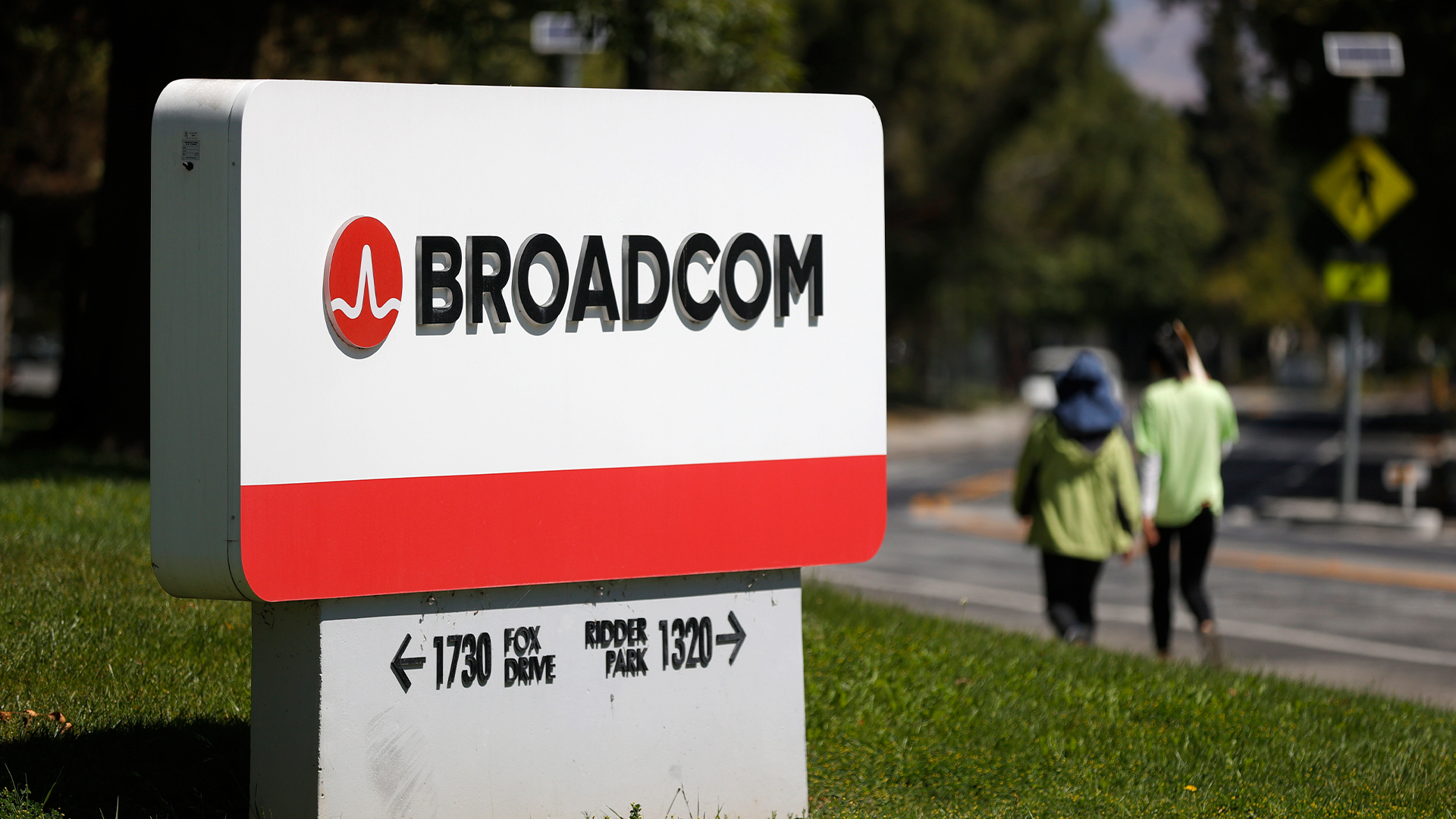 CISPE claims European Commission gave Broadcom a ‘blank cheque to raise prices, lock-in, and squeeze customers’ with VMware deal
CISPE claims European Commission gave Broadcom a ‘blank cheque to raise prices, lock-in, and squeeze customers’ with VMware dealNews Cloud providers have issued a formal response to the General Court of the European Union after the Commission defended its approval of the deal
-
 Salesforce opens up Agentforce 360 for partners to drive agent development
Salesforce opens up Agentforce 360 for partners to drive agent developmentNews Salesforce has opened up its Agentforce 360 platform to allow partners to build and sell AI agents and applications.
-
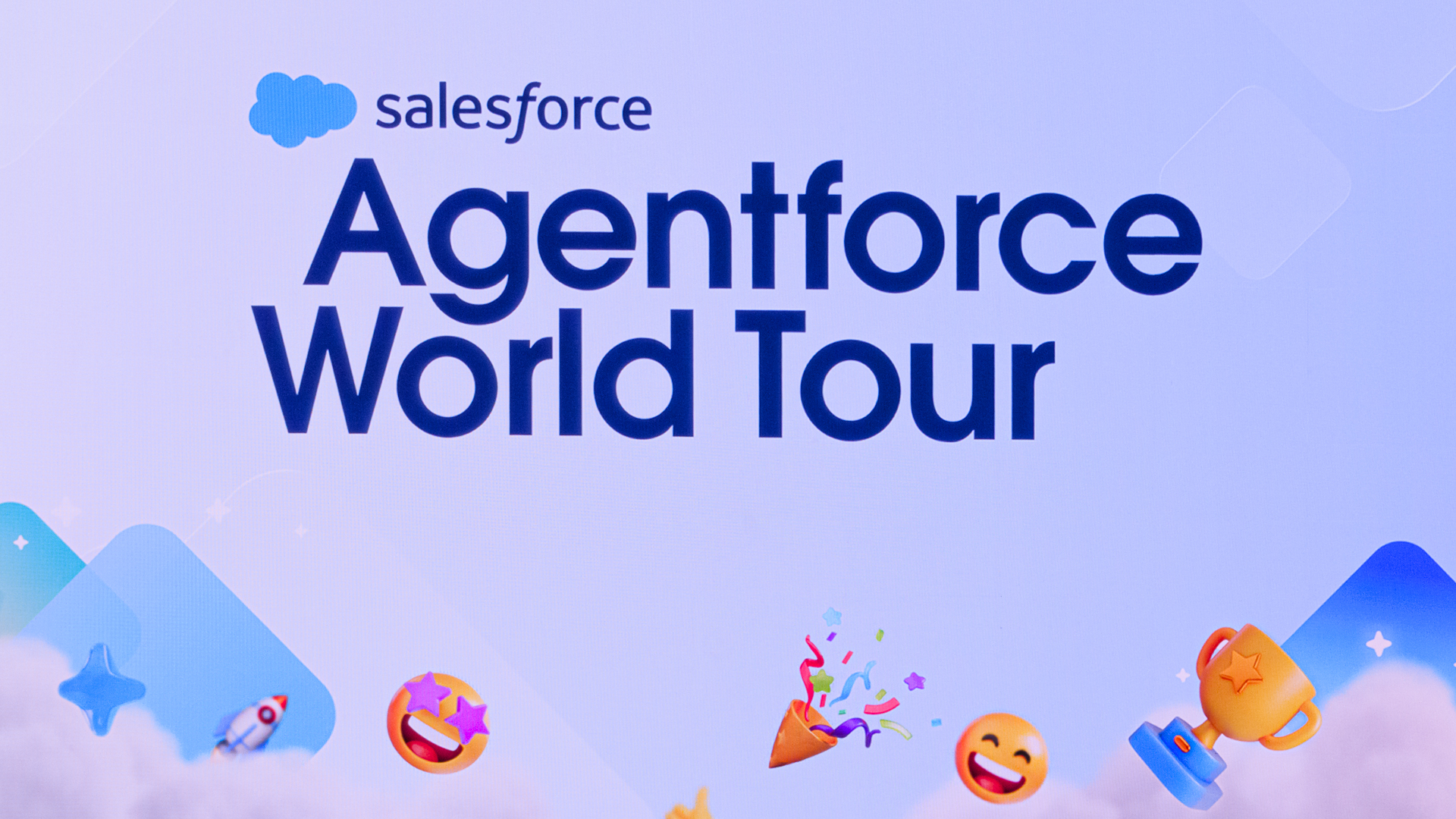 Salesforce targets better data, simpler licensing to spur Agentforce adoption – and its acquisition of Informatica is key
Salesforce targets better data, simpler licensing to spur Agentforce adoption – and its acquisition of Informatica is keyNews The combination of Agentforce 360, Data 360, and Informatica is more context for enterprise AI than ever before
-
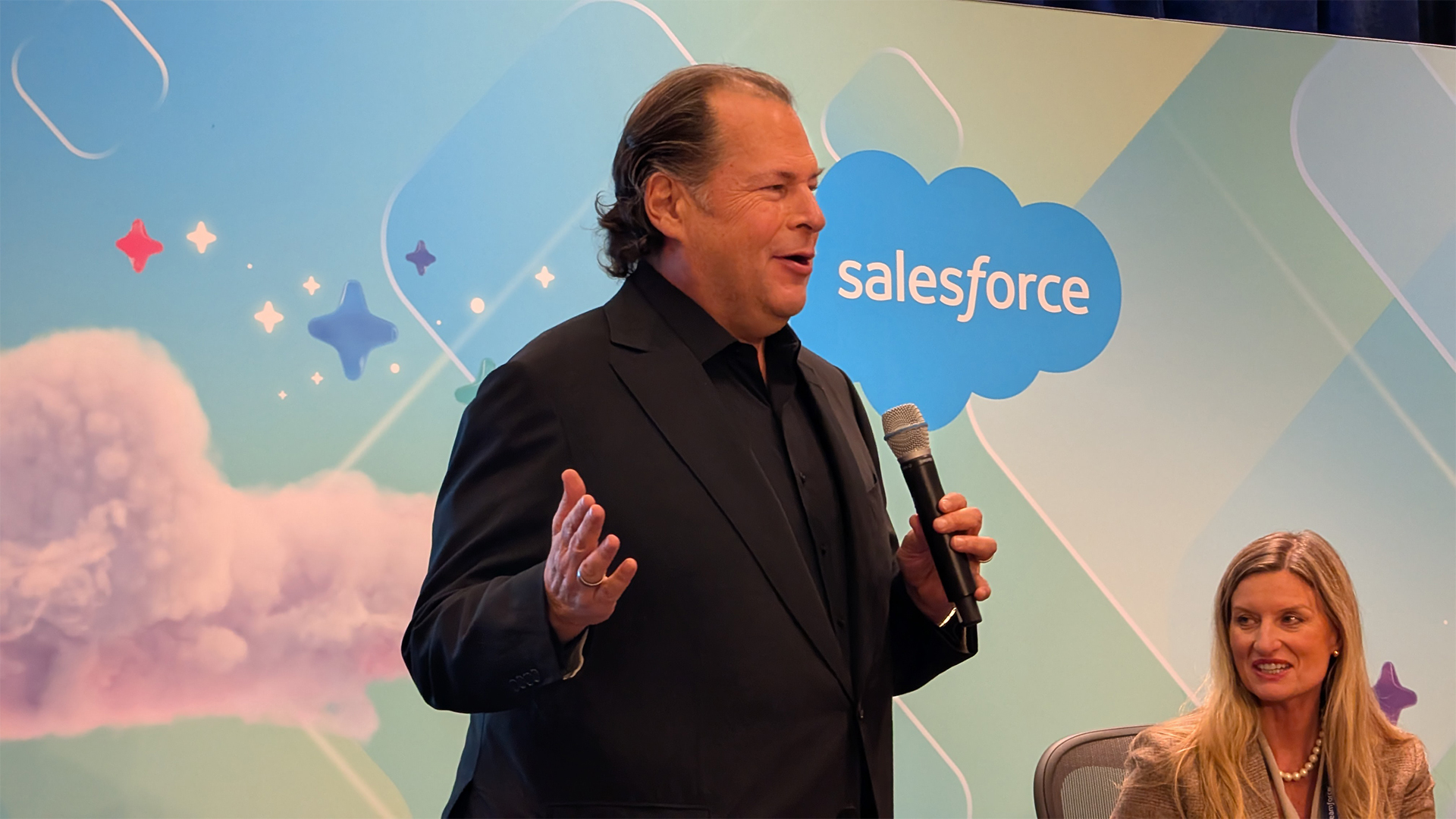 Salesforce could become the king of enterprise AI – but only if customers believe in its potential
Salesforce could become the king of enterprise AI – but only if customers believe in its potentialAnalysis At Dreamforce 2025, Salesforce painted a believable picture for enterprise AI, but shareholders will only be reassured by greater business buy-in
-
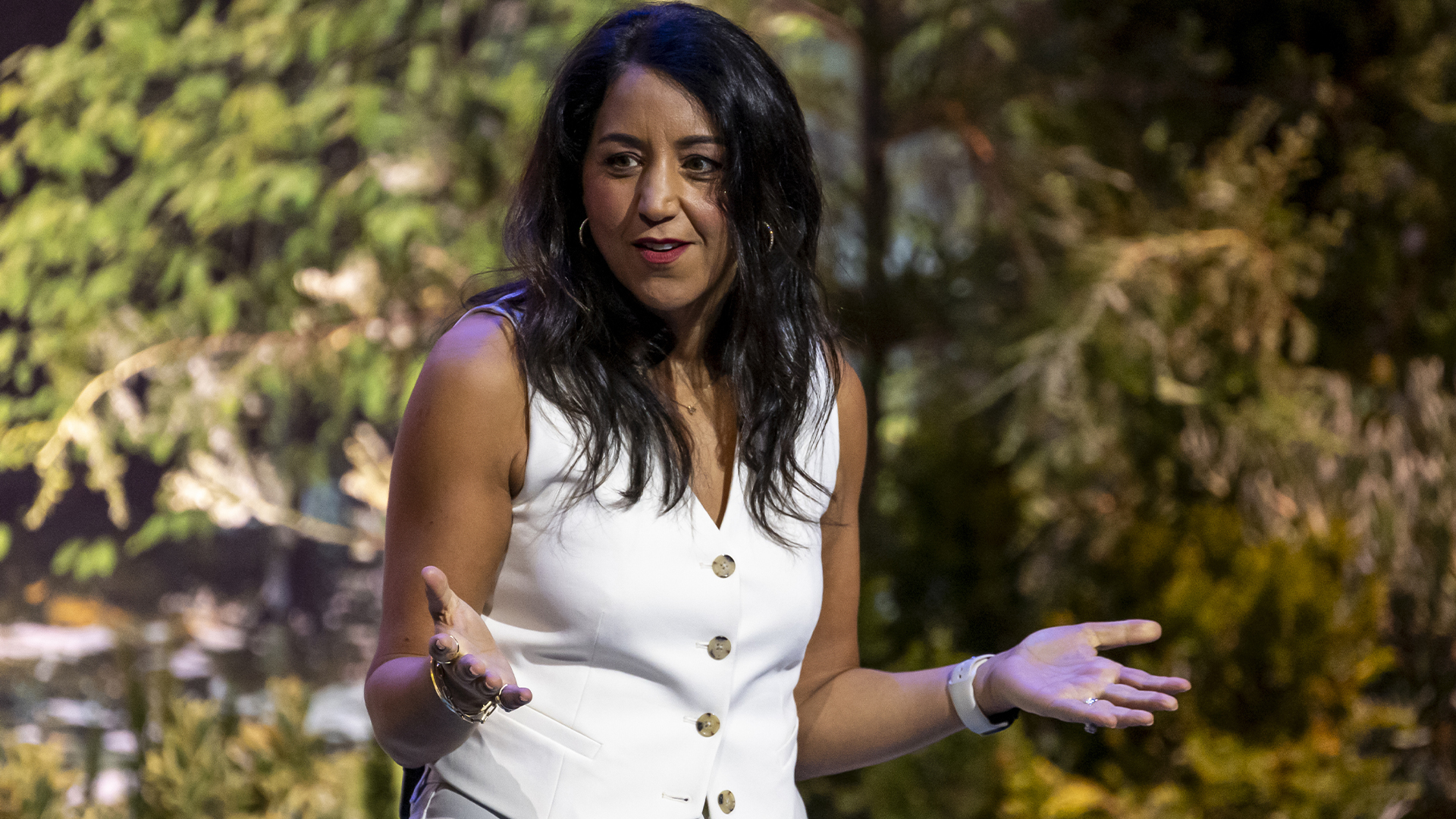 "Do not sacrifice your entry-level jobs": Salesforce might be all in on AI, but it isn't giving up on junior workers yet – despite Marc Benioff's job replacement claims
"Do not sacrifice your entry-level jobs": Salesforce might be all in on AI, but it isn't giving up on junior workers yet – despite Marc Benioff's job replacement claimsNews Salesforce is still committed to hiring junior team members even as AI automates roles, according to UK&I chief executive Zahra Bahrololoumi.
-
 CFOs were skeptical about AI investment, but they’ve changed their tune since the arrival of agents
CFOs were skeptical about AI investment, but they’ve changed their tune since the arrival of agentsNews The introduction of agentic AI has CFOs changing their outlook on the technology
-
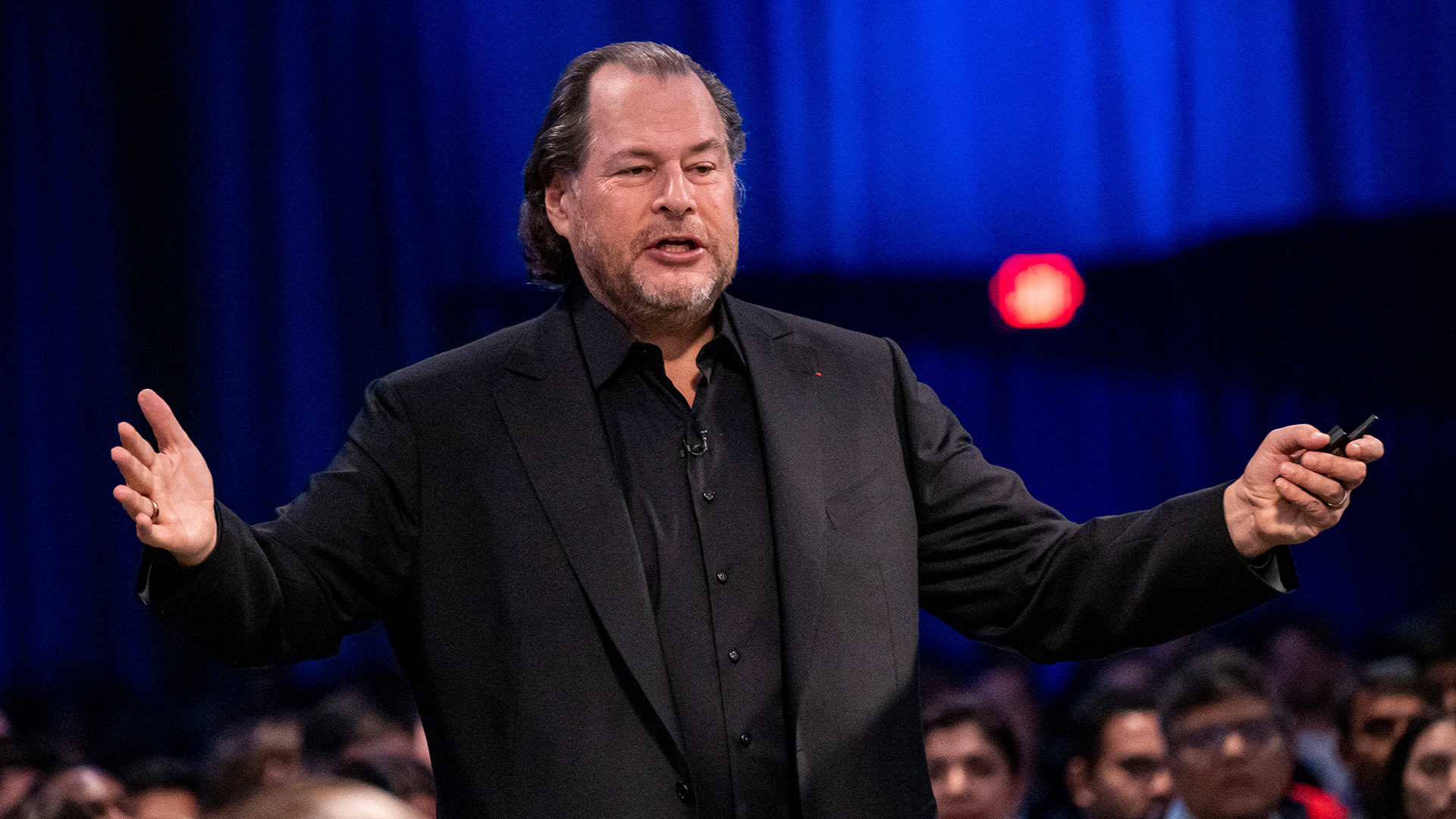 Marc Benioff’s agentic AI gambit is paying dividends
Marc Benioff’s agentic AI gambit is paying dividendsAnalysis Agentforce is dominating the agenda at Salesforce – and it appears to be working
-
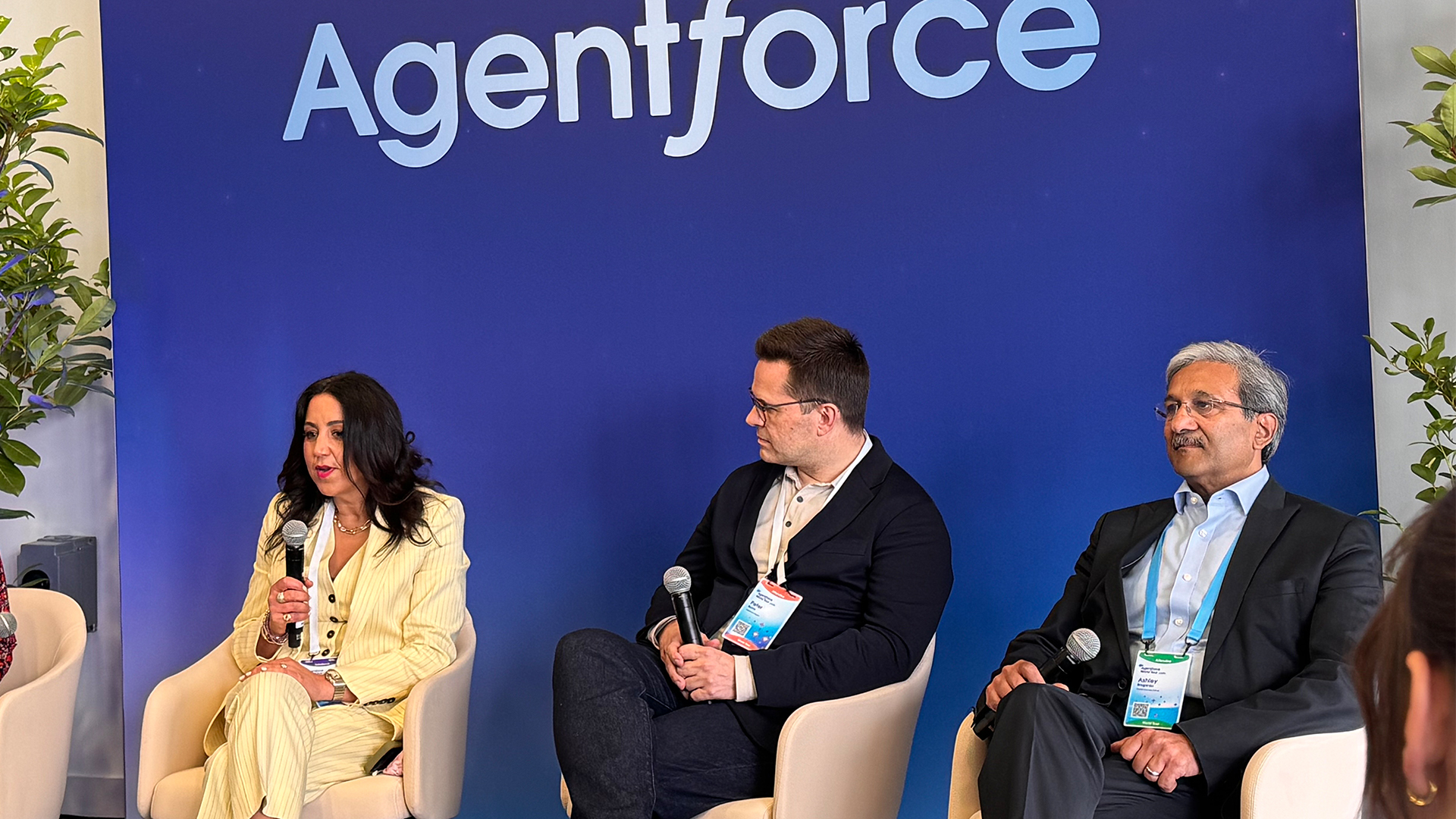 ‘We’ve got some fabulous conditions’: Salesforce UK chief exec Zahra Bahrololoumi touts the country's tech industry potential
‘We’ve got some fabulous conditions’: Salesforce UK chief exec Zahra Bahrololoumi touts the country's tech industry potentialNews The UK remains a “priority market” for Salesforce, according to its regional CEO
-
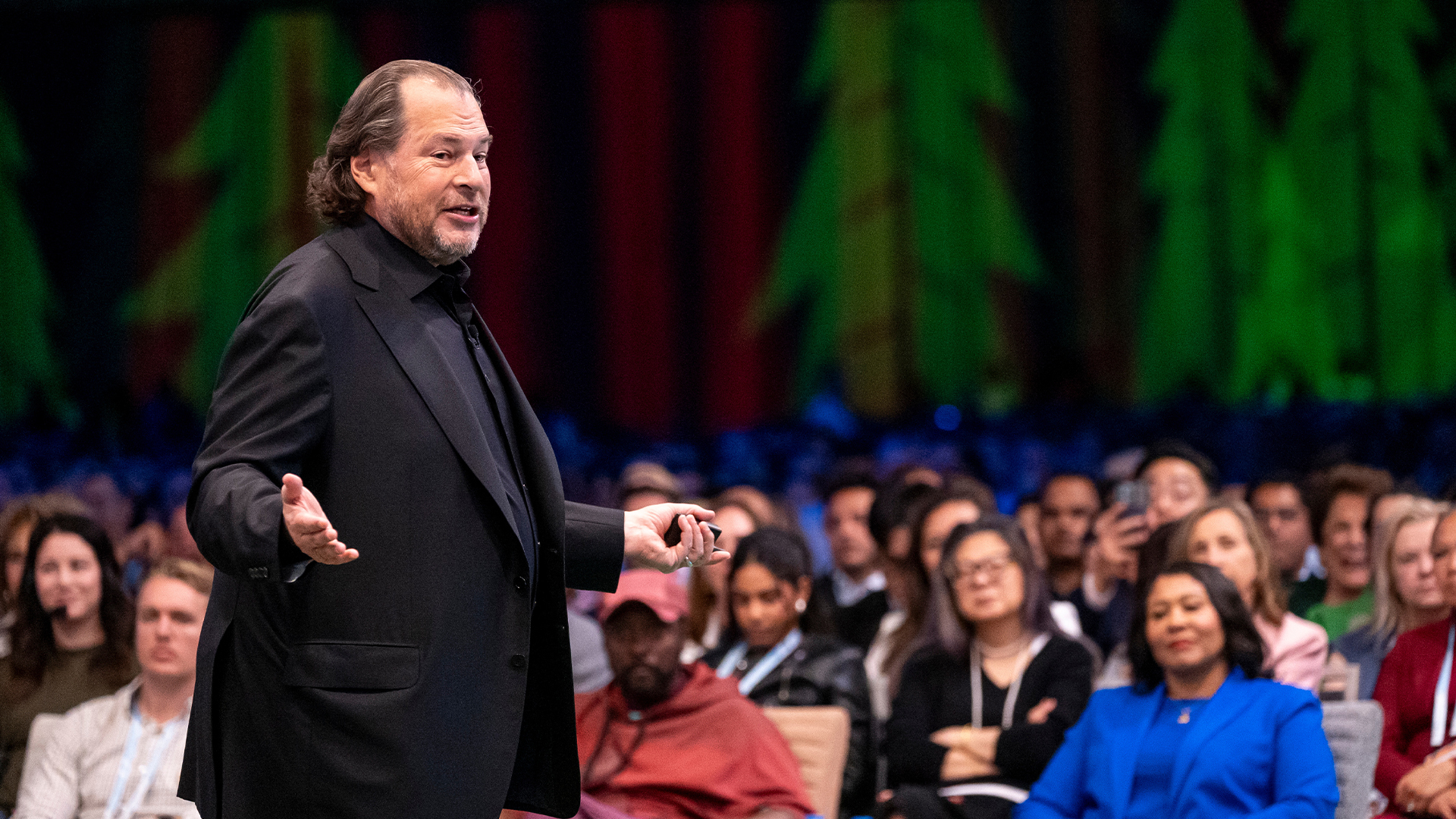 ‘A bold and highly strategic move’: Why Salesforce’s Informatica acquisition could be the key to Benioff’s agentic AI dream
‘A bold and highly strategic move’: Why Salesforce’s Informatica acquisition could be the key to Benioff’s agentic AI dreamAnalysis Industry analysts have described the Informatica acquisition as a "bold and highly strategic move".